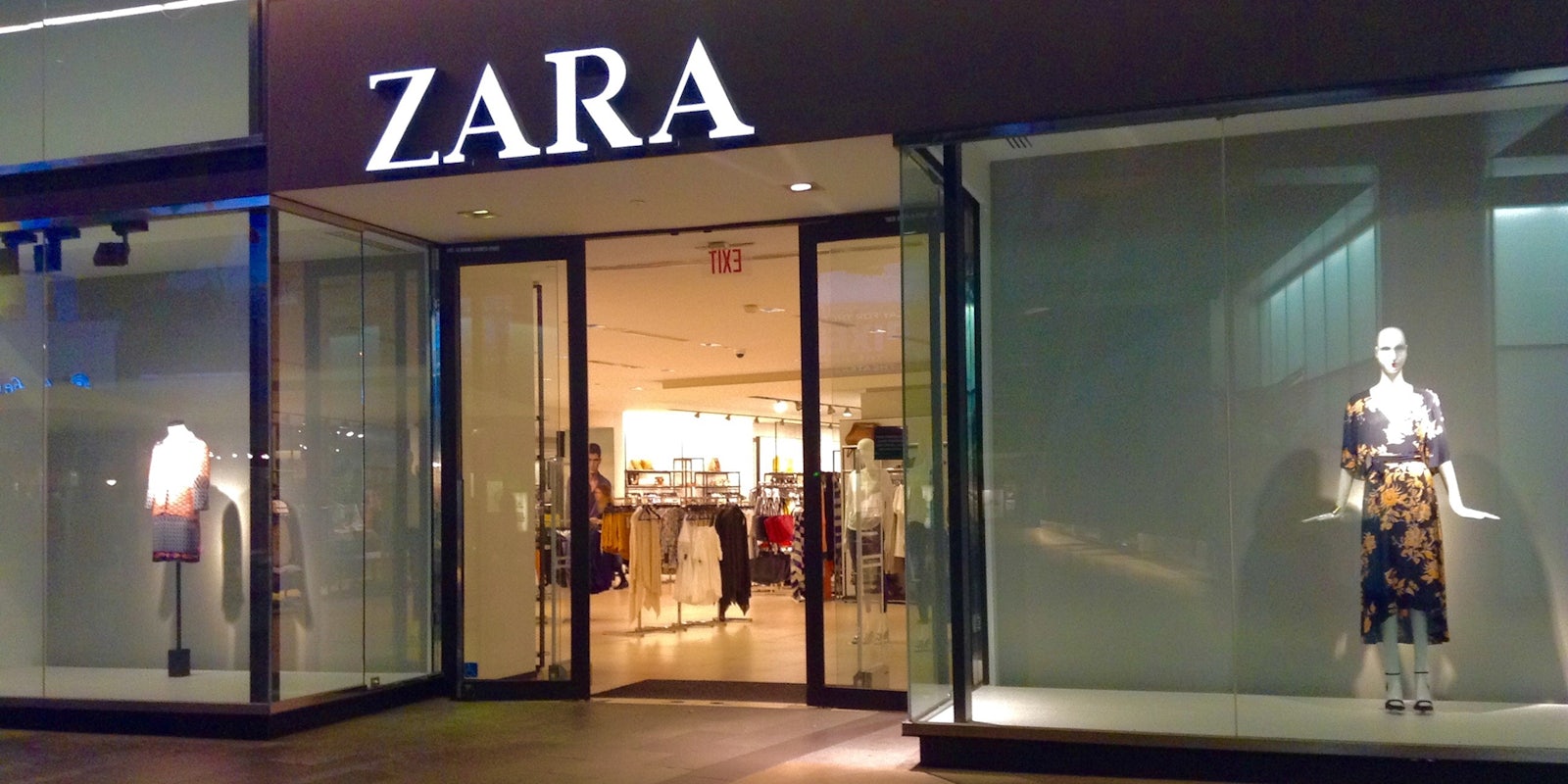Spanish clothing company Zara was recently hit with a $5 million class-action lawsuit over allegations of price-gouging and deception. And now a new video proves just how far the company jacks up its prices for American stores.
https://www.youtube.com/watch?v=GtPjf-Kj3rQ
For the video, the law firm representing the class action suit, Geragos & Geragos, sent staffers into a downtown Los Angeles store to compare the dollar price tags with the original euro price tags still attached to the garments.
The results were embarrassing: The price differences show that Zara has been arbitrarily marking up prices for American shoppers, sometimes by as much as double the original cost.
The lawsuit was brought on behalf of California resident Devin Rose, after he noticed he was being price-gouged when he calculated the current euro-to-dollar exchange rate, according to TheFashionLaw.com.
“The actual euro-dollar exchange rate would have resulted in his €9.95 shirts costing approximately $11.26 each,” reads the lawsuit. “Instead, however, Zara charged Mr. Rose $17.90 per garment, a markup of nearly 60 percent.”
According to the lawsuit, Zara responded to the allegations with the following statement: “Zara vehemently denies any allegations that the company engages in deceptive pricing practices.”
But when Geragos & Geragos sent another undercover shopper into a store, they found that not only were the prices wildly different than the exchange rate would have determined, the store clerk played dumb about the ripoff.
https://www.youtube.com/watch?v=AzUgX9QuIIU
In the video, the store clerk can be overheard talking to a customer on the phone about the price conversion, saying that “we don’t have the device to convert” prices and “the only thing we can do is sell it at the price that it’s ringing up.”
The lawsuit claims this kind of last-minute cash register baiting is a willful common practice at Zara stores—of which there are 2,100 in 88 countries, according to its umbrella corporation Inditex.
“Many of Zara’s products are tagged only with a euro price. This alone is confusing to many consumers and lures them to the register,” reads the lawsuit. “Compounding matters, not only is the same product sold for a substantially higher amount in dollars, but the product is always sold well in excess of the true converted amount if the euro price on the tag were properly converted to dollars.”
The lawsuit is just the latest legal problem for Zara, which was publicly accused of stealing the copyrighted designs of dozens of independent enamel pin and patch designers in July.


